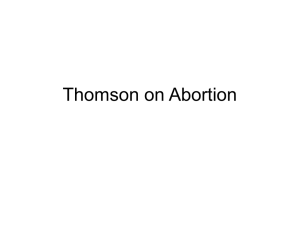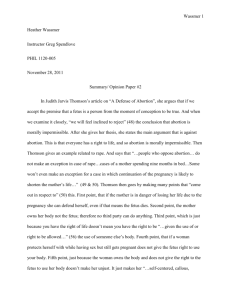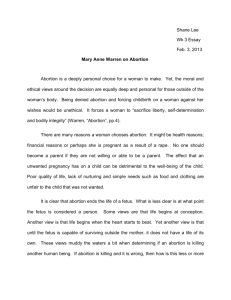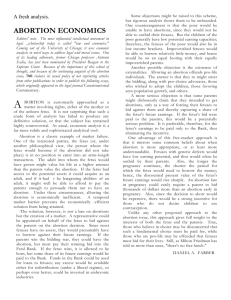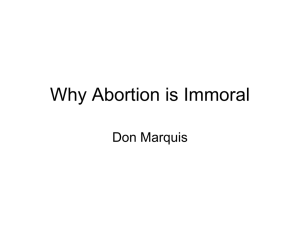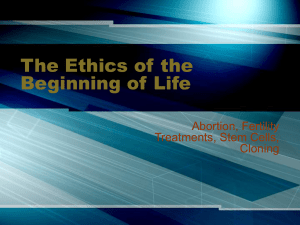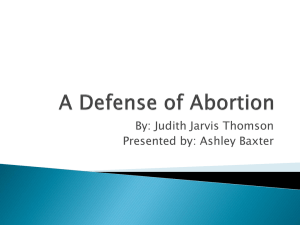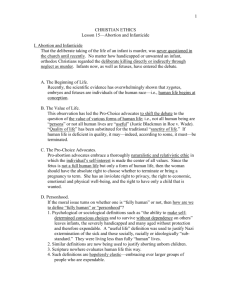Nothing wrong with abortion
advertisement
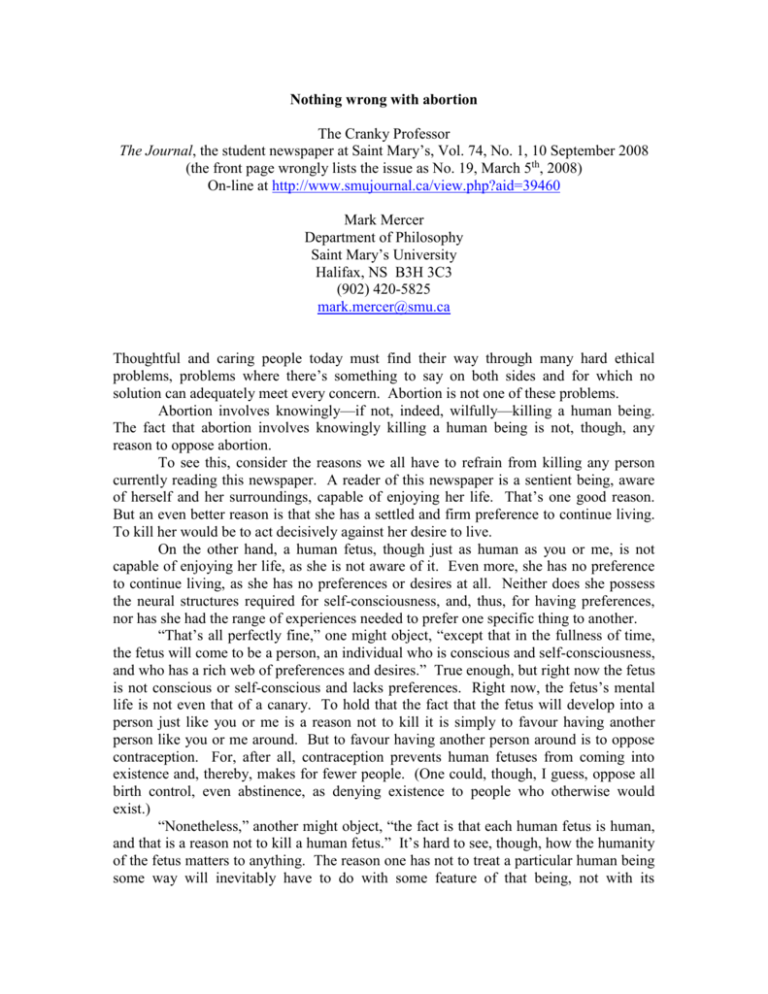
Nothing wrong with abortion The Cranky Professor The Journal, the student newspaper at Saint Mary’s, Vol. 74, No. 1, 10 September 2008 (the front page wrongly lists the issue as No. 19, March 5th, 2008) On-line at http://www.smujournal.ca/view.php?aid=39460 Mark Mercer Department of Philosophy Saint Mary’s University Halifax, NS B3H 3C3 (902) 420-5825 mark.mercer@smu.ca Thoughtful and caring people today must find their way through many hard ethical problems, problems where there’s something to say on both sides and for which no solution can adequately meet every concern. Abortion is not one of these problems. Abortion involves knowingly—if not, indeed, wilfully—killing a human being. The fact that abortion involves knowingly killing a human being is not, though, any reason to oppose abortion. To see this, consider the reasons we all have to refrain from killing any person currently reading this newspaper. A reader of this newspaper is a sentient being, aware of herself and her surroundings, capable of enjoying her life. That’s one good reason. But an even better reason is that she has a settled and firm preference to continue living. To kill her would be to act decisively against her desire to live. On the other hand, a human fetus, though just as human as you or me, is not capable of enjoying her life, as she is not aware of it. Even more, she has no preference to continue living, as she has no preferences or desires at all. Neither does she possess the neural structures required for self-consciousness, and, thus, for having preferences, nor has she had the range of experiences needed to prefer one specific thing to another. “That’s all perfectly fine,” one might object, “except that in the fullness of time, the fetus will come to be a person, an individual who is conscious and self-consciousness, and who has a rich web of preferences and desires.” True enough, but right now the fetus is not conscious or self-conscious and lacks preferences. Right now, the fetus’s mental life is not even that of a canary. To hold that the fact that the fetus will develop into a person just like you or me is a reason not to kill it is simply to favour having another person like you or me around. But to favour having another person around is to oppose contraception. For, after all, contraception prevents human fetuses from coming into existence and, thereby, makes for fewer people. (One could, though, I guess, oppose all birth control, even abstinence, as denying existence to people who otherwise would exist.) “Nonetheless,” another might object, “the fact is that each human fetus is human, and that is a reason not to kill a human fetus.” It’s hard to see, though, how the humanity of the fetus matters to anything. The reason one has not to treat a particular human being some way will inevitably have to do with some feature of that being, not with its humanity, which, after all, is just its membership in a particular species. (One could, again, care that members of some species are not killed just in virtue of their membership in that species, but I don’t think many of us do.) Now we ought not to use abortion as a means of birth control in preference to condoms and foam or the pill. That’s not, though, as we have seen, because we have any reason to protect a fetus from being killed when a woman wants to end her pregnancy. We ought not to prefer abortion to condoms and foam because abortion is a surgical procedure that involves risk, time, energy, and money. Better, then, not to have become pregnant in the first place than to have an abortion. But if one is pregnant and one doesn’t want to be, that abortion involves knowingly killing a human being is no reason not to have an abortion. From an ethical point of view, abortion is entirely a matter of indifference. —30—

